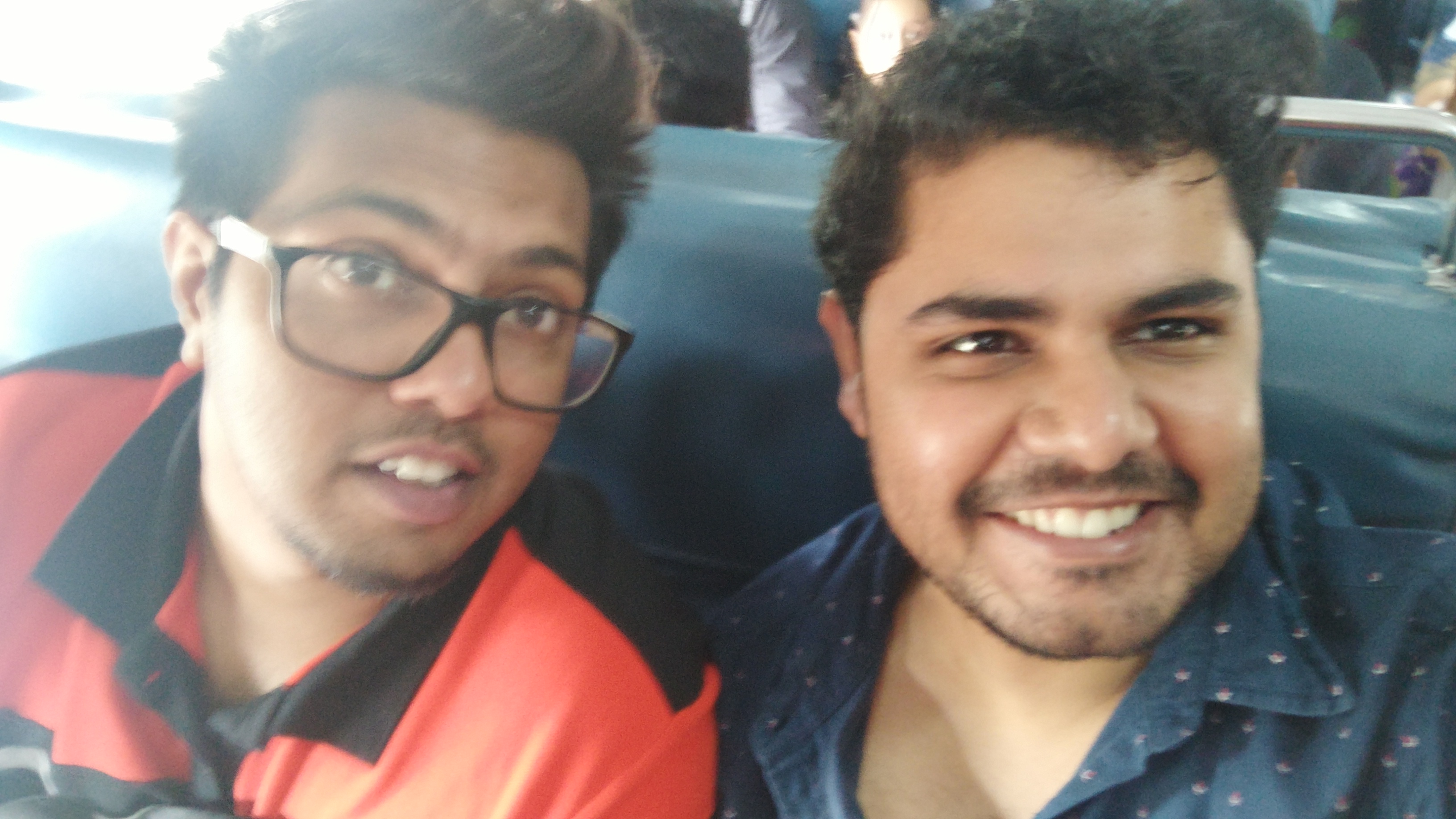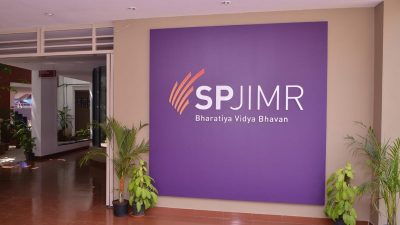We have Hari Ashwath Ramachandran with us today, who is joining SPJIMR Mumbai's Class of 2020 for its flagship PGDM program. Hari is a Computer Science Engineer and has 3.5 years of professional experience. In this conversation, Hari shares how he prepared for CAT 2019 and the interview rounds of the B-Schools, had his friends' support to cope up with his mother's untimely demise, and ultimately, made it to SPJIMR Mumbai with a poor academic background. So how did he make it to SPJIMR Mumbai, given the institute has a high weightage on profile?
Find out here!
Hello Hari, Can you tell the readers a bit about yourself?
I'm Hari Ashwath Ramachandran, and I'm from Bangalore. I'm a CS engineer and have 17 months work ex in IT Consulting and 24 months work ex as a public sector banker.
Academically, my profile is fairly weak (75.14 in 10th ICSE, 83.33% in 12th Karnataka PUC, and 74. 71% in BE VTU). I'm also an amateur film-critic, a dramatist, and I read a lot.
I secured 99.44%ile in CAT 2019 (overall score of 168.44, sectionals 99.92/99.07/91.40). I had calls from SPJIMR, MDI Gurgaon, IIML(PGP-SM), XLRI BM, and FMS, and I have converted SPJIMR, MDI Gurgaon, and IIML(PGP-SM).

Considering your academics, did you feel that you were on the backfoot starting off?
See, that's the thing. I wasn’t aware that bad academics were going to ruin my chances. I wasn't well aware of CAT, the exam, the structure, the criteria that various B schools set, and the process back when I started in May 2019. Ignorance can be a blessing in disguise at times.
I did get a clear picture by September and at that point of time, my mock test performance was the one thing that kept my spirits up. I knew I'd have to compensate for my subpar acads with my CAT and leverage my work experience.
And you truly did that with your stellar CAT score, can you tell our readers how you managed to get a stellar percentile of 99.44 along with your work?
I knew that I wouldn't get more than 2-3 hours a day to actually get my concepts right. I used this time to write mocks, and spend time analysing where I went wrong. Differentiating between blunders and actual conceptual lacunae helped, as did dissecting the mocks.
Coming to individual sections, I was always an avid reader (any topic under the sun really), and it helped me a lot with respect to VARC. LRDI was really all about practice, and choosing the right sets (choosing the right sets differentiates the 99%iler from the rest of the crowd). Quants was again about practice and conceptual clarity (a fairly high degree of conceptual clarity especially with respect to numbers, and practice for geometry and arithmetic).
How did you start preparing for the interviews?
I had a major setback in January, right before the calls. I had lost my mother on the 31st of December.
At that point of time, as the b-school calls came in, my fellow CAT aspirants and friends really came to the rescue. Althaf K A, Amit Bhartia, Swaminathan and Akshay. My mentors Sarthak Rout, Padmanabh Pandit and Naman Jain really helped me through this process. Be it conducting mock interviews, or just checking up on me, to see that I'm doing fine. I was at rock bottom when I didn’t get a ton of calls; but that's the thing about rock bottom - when you hit it, there's only one way to go, and that's up. And they really helped me stay grounded during the process, and be myself.
That is inspiring to have gone through so much and yet come and give the interviews. What were your first interviews and how did they go?
SPJIMR was my first interview, and it was scheduled on Valentine's day in Bangalore (couldn't have asked for a better date). I was nervous when I got to the venue, but I quickly made friends with my fellow GI 1 candidates (Rishabh Gupta, Raghav Balasankaran, Varsha Nathan, and Aeshani Gupta - and 4 of 5 of us made it to GI 2, and as fate would have it, to SPJIMR as batchmates).
It started out with the psychometric test and WAT, which went on well. The real test started out during GI 1, when one of the panelists started off with "Why do you think you're here? What do you want us to ask?". It was at this point that I realized that no amount of practice can teach you things - sometimes you just have to be yourself (well, most of the times), and introspect and judge your aptitude and fit accordingly.
Post your interview, how were you feeling? Were you thinking about your chances?
Post-interview overthinking and over-analysis was a hobby we all grew fond of. We found a million little ways in which everything could, theoretically, go wrong. How we may have come out as offensive, or whether our hands were in the right place, whether our posture was right, and whether we maintained eye contact and smiled (smile and wave boys, as we're all advised to ).
SPJIMR was my first one, and I couldn't help but feel I fared poorly in my GI 2, and went on comparing myself to my GI 2 candidates and their responses. The ultimate learning point of this futile exercise, as I found out a week after my IIML interview, was that there's no point fretting about things you have no control of. You had control during the interview, but now it's over. Now, there's only the next interview, and whether you're prepared or not.
Why do you think your interviewers selected you despite the poor academics?
I’d let higher powers be, and just thank my stars at this point. Haha.
But I'd like to believe it was because of my passion for Finance, about how articulate I was about my role in my organization, and my interests (film criticism, and theatre). Acads alone won't matter if one is stuck at a dead-end job, or is unaware of the impact they have on their organization. Presentation is an equally important facet that people miss out, and being able to replicate a calm yet firm resolve on where you stand on what you know is important.
Speaking of other interviews. Can you share some experiences from the other interviews?
IIML(PGP-SM) was arguably my best interview of the season, and I was in my comfort zone. It revolved around Parasite and my work-ex.
My XLRI HRM interview was a disaster, as I was unprepared, and wasn't sure if I wanted HRM. And the panellists knew it at the first glance (I could've sworn I saw Prof Gurunathan's eyes twinkle).
XLRI BM was, however, different. It was again comfortable, and went slow, and was explorative in nature.
What are your tips for candidates with poor academics and GEM (the double whammy of MBA prep)?
There's no point in worrying about things that have happened in the past. It distracts from the now, and regret is a powerful disabler.
What's in our hands is our ability to do well in CAT, and there's only one way forward - practice. Write as many mocks as possible (40-45 ideally, and spend time dissecting them to understand your strengths and weaknesses). Meaningful work ex (or work ex made meaningful by way of good articulation) goes a long way in helping trump the
puraane paap, as does solid extracurriculars (wins, district level, state-level or national level). I banked on my work ex. Just find the strong part of your profile, put it on a pedestal, and build your profile around it.
Above all else, remember - you are the captain of your soul, the maker of your destiny. It's all you.
The place where Hari made it happen.
***
Recommended For You:
- My Delivery Date Was Due In 4 Days From Writing My B-school Entrance Exam, Ft. Sanchita Gupta, Tata Steel HRBP
- From A Hospital Bed To IIM Lucknow - A Leap From Scoring 47%ile In Mocks To 99.4%ile In CAT '18
- Thrown Off A Moving Train, Rejected 5 Times By IIM A - Ameer Iqubal's Journey To Success Against All Odds



